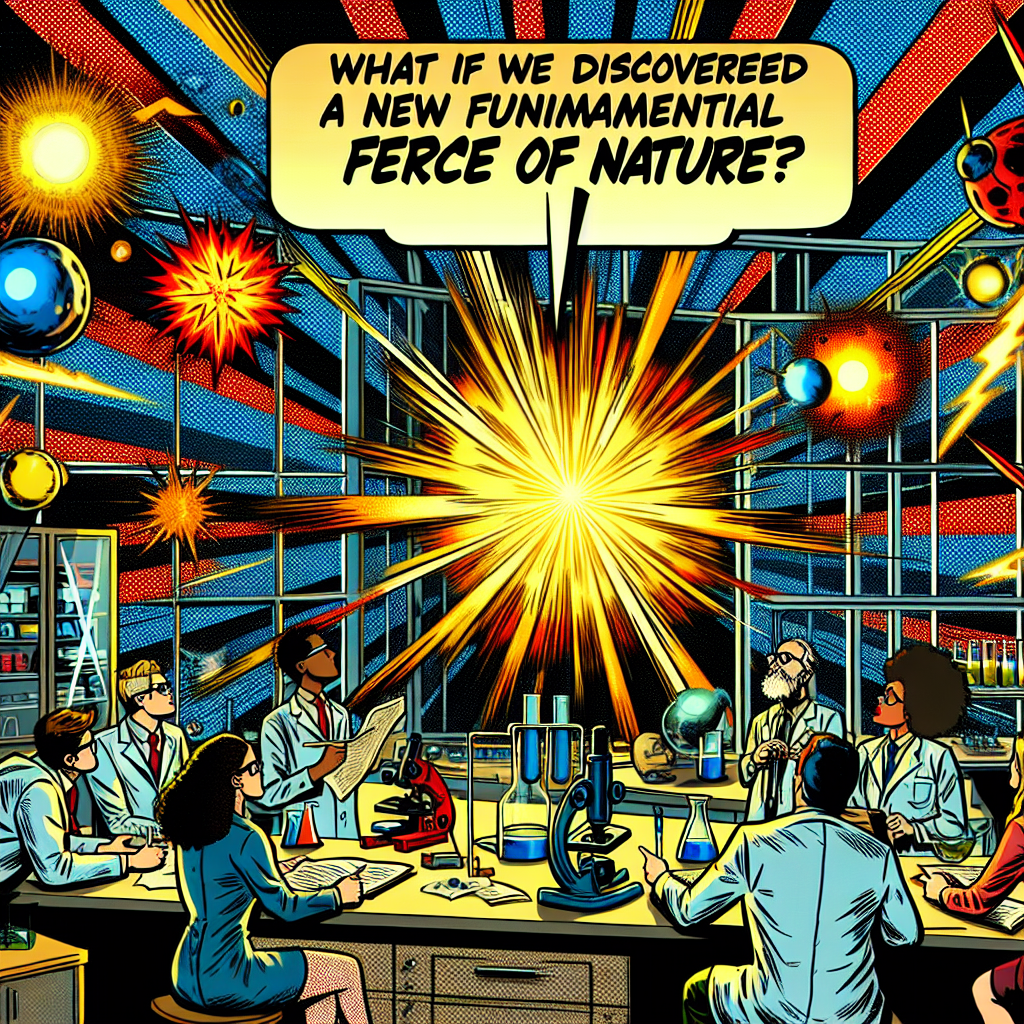The fundamental forces of nature - gravity, electromagnetism, and the strong and weak nuclear forces - are the pillars that hold our universe together. Imagine these forces as a set of intricately intertwined threads that weave the fabric of reality. Now, what if we discovered a new fundamental force of nature? This would be akin to finding a previously unknown thread that's been hiding in plain sight, waiting to be unraveled.
To grasp the significance of this discovery, let's take a step back and explore the current understanding of the fundamental forces. Gravity, the force that warps space and time, is responsible for keeping planets in orbit and objects on the ground. Electromagnetism, on the other hand, is the force that acts between charged particles, governing the behavior of light and electricity. The strong nuclear force holds quarks together inside protons and neutrons, while the weak nuclear force facilitates certain types of radioactive decay. Each of these forces has a unique set of properties and interactions that shape our universe.
Now, imagine a new force that doesn't fit into any of these categories. This force would require a new set of rules, a new language, and a new understanding of how the universe operates. It would be like discovering a new color that doesn't fit into the traditional ROYGBIV spectrum - it would challenge our current understanding of the visible spectrum and force us to reevaluate our perception of reality.
One of the most immediate consequences of discovering a new fundamental force would be the revision of the Standard Model of particle physics. This model, which describes the behavior of fundamental particles like quarks and leptons, would need to be updated to accommodate the new force. This would be akin to rewriting a long-standing recipe book to include a new, exotic ingredient that changes the flavor profile of every dish.
The discovery of a new force would also raise questions about the unification of forces. Currently, physicists believe that the fundamental forces were unified in the very early universe, only to diverge as the universe expanded and cooled. The discovery of a new force would challenge this understanding, potentially revealing new insights into the universe's early history.
Another area of investigation would be the search for new particles associated with the new force. Just as the electromagnetic force has photons and the weak nuclear force has W and Z bosons, a new force would likely have its own set of particles. These particles would be the messengers of the new force, mediating its interactions and facilitating communication between particles.
The discovery of a new force would also have significant implications for our understanding of the universe on large scales. Cosmologists would need to reexamine their models of the universe's evolution, taking into account the influence of the new force on the growth of structure and the distribution of matter.
On the experimental side, the discovery of a new force would require the development of new tools and techniques. Particle colliders, like the LHC, would need to be modified or even replaced to accommodate the search for new particles and forces. Theoretical models would need to be developed to describe the behavior of the new force, and experimental searches would need to be designed to detect its presence.
To facilitate the discovery of a new force, physicists would need to develop new detection methods, potentially involving exotic materials or innovative uses of existing technologies. This could lead to breakthroughs in fields like materials science and optics, as researchers develop new tools to probe the universe.
The discovery of a new fundamental force would also have significant implications for our understanding of the universe's most fundamental constants. The values of constants like the speed of light and the gravitational constant might need to be revised, leading to a deeper understanding of the universe's underlying structure.
In the realm of philosophy, the discovery of a new force would challenge our understanding of the nature of reality. It would be a reminder that our current understanding of the universe is incomplete, and that there may be hidden patterns and structures waiting to be uncovered.
As we continue to explore the universe, the discovery of a new fundamental force would be a powerful reminder of the awe-inspiring complexity of the cosmos. It would be a call to reassess our current understanding, to challenge our assumptions, and to push the boundaries of human knowledge further than ever before.

Popular Space Questions
Find answers to the trending space questions being asked by our community on social media.
- How many galaxies are there in the universe?
- What would happen if a rogue planet entered our solar system?
- How far is Pluto from Earth?
- How many planets are in the Milky Way?
- How many planets are in our solar system?
- How big is the Earth?
- What are the planets in order?
- How big is the universe?
- What would happen if a pulsar's beam hit Earth?
- What if we found a way to manipulate gravity?